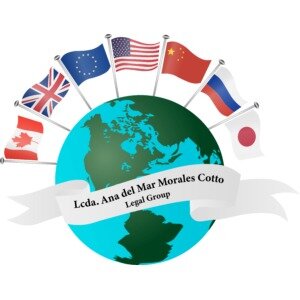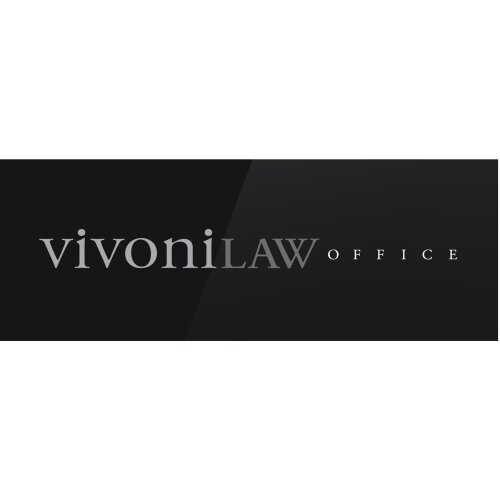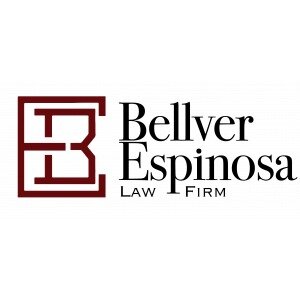Best Nonprofit & Charitable Organizations Lawyers in San Juan
Share your needs with us, get contacted by law firms.
Free. Takes 2 min.
List of the best lawyers in San Juan, Puerto Rico
About Nonprofit & Charitable Organizations Law in San Juan, Puerto Rico
Nonprofit and Charitable Organizations in San Juan, Puerto Rico play a crucial role in addressing community needs, supporting cultural initiatives, and fostering economic development. These organizations typically operate without the intent of making a profit, instead focusing on public benefit activities. Understanding the legal landscape for nonprofit organizations in San Juan is essential for compliance, efficiency, and sustainability of operations. Legal frameworks in this region provide guidelines for structuring, managing, and reporting for charities and nonprofits, aligning them with federal and local regulations.
Why You May Need a Lawyer
There are several situations where an organization or individual involved with nonprofits in San Juan might seek legal assistance:
- Organizational Formation: Navigating the complexities of establishing a nonprofit organization, including drafting articles of incorporation and bylaws, and obtaining 501(c)(3) status.
- Compliance Issues: Ensuring the organization adheres to both local and federal regulations to maintain its tax-exempt status.
- Employment Matters: Handling employment contracts, volunteer agreements, and ensuring compliance with labor laws.
- Contract Negotiations: Reviewing and negotiating contracts for events, service providers, or collaborations.
- Board Governance: Advising on board member responsibilities, conflicts of interest, and documentation of board meeting minutes.
- Fundraising and Grants: Complying with regulations related to soliciting donations and managing grant funds.
- Dispute Resolution: Managing internal disputes, donor relationship issues, or conflicts with other entities.
Local Laws Overview
San Juan, Puerto Rico has specific legal considerations for nonprofits and charitable organizations. Some key aspects include:
- Registration Requirements: Nonprofits must register with the Puerto Rico Department of State to legally operate.
- Tax Exemptions: Organizations must apply for tax-exempt status at both the federal IRS level and with the Puerto Rico Departamento de Hacienda for local tax exemptions.
- Financial Reporting: Nonprofits need to submit annual financial reports to maintain transparency and demonstrate compliance with legal standards.
- Corporate Governance: Adherence to corporate governance standards is mandatory, ensuring accountability and transparency in operations.
Frequently Asked Questions
1. How can I start a nonprofit organization in San Juan?
You need to draft and file articles of incorporation, create bylaws, apply for an Employer Identification Number (EIN), and secure tax-exempt status by applying to the IRS and local tax authority.
2. What is the process to obtain 501(c)(3) status?
To attain 501(c)(3) status, your organization must apply to the IRS by completing Form 1023 or Form 1023-EZ, depending on the size and scope of your nonprofit.
3. Are there special tax benefits for nonprofits in Puerto Rico?
Yes, nonprofits can apply for local tax-exempt status with the Puerto Rico Departamento de Hacienda, which may exempt them from certain local taxes.
4. What governance structures should a nonprofit in San Juan have?
Successful nonprofits generally have a board of directors, chaired by a president and supported by other officers who oversee compliance and strategic direction.
5. How often should nonprofits in San Juan meet for board meetings?
Typically, the bylaws will dictate meeting frequency, but many organizations hold board meetings quarterly to ensure strong oversight.
6. Can nonprofits in San Juan pay their board members?
While board members can be compensated, many choose to serve on a volunteer basis to preserve the nonprofit status and fund allocation efficiency.
7. Do nonprofits need to file tax returns in Puerto Rico?
Yes, even tax-exempt organizations must file annual returns with the Department of Hacienda and provide financial statements to maintain transparency.
8. What legal requirements exist for fundraising in Puerto Rico?
Nonprofits must adhere to specific registration and reporting requirements for fundraising activities, including compliance with local solicitation laws.
9. Can I receive a salary from my nonprofit organization?
Yes, reasonable compensation is permitted for services provided, but it must align with industry standards and legal guidelines to avoid conflict of interest allegations.
10. What are the benefits of hiring a nonprofit lawyer?
A lawyer specializing in nonprofit law can help ensure compliance with all legal requirements, address any disputes, and provide strategic guidance for effective governance and operations.
Additional Resources
For further assistance or more information, consider reaching out to the following organizations:
- Puerto Rico Department of State: For registration and compliance information.
- Departamento de Hacienda: For tax-related queries and local exemptions.
- Foundation Center: Access to resources for funding, training, and best practices for nonprofit management.
- Colegio de Abogados de Puerto Rico: The Bar Association can refer experienced lawyers in nonprofit law.
Next Steps
If you need legal assistance related to Nonprofit & Charitable Organizations in San Juan, consider these steps:
- Identify and document specific issues or questions you have regarding your organization.
- Contact local nonprofit legal resources or networks for referrals to qualified lawyers who specialize in nonprofit law.
- Schedule consultations with a few attorneys to assess experience, compatibility, and service fees to ensure you find a suitable legal advisor.
Remember, addressing legal matters proactively can support your nonprofit’s success and sustainability, ensuring compliance and promoting ethical governance.
Lawzana helps you find the best lawyers and law firms in San Juan through a curated and pre-screened list of qualified legal professionals. Our platform offers rankings and detailed profiles of attorneys and law firms, allowing you to compare based on practice areas, including Nonprofit & Charitable Organizations, experience, and client feedback.
Each profile includes a description of the firm's areas of practice, client reviews, team members and partners, year of establishment, spoken languages, office locations, contact information, social media presence, and any published articles or resources. Most firms on our platform speak English and are experienced in both local and international legal matters.
Get a quote from top-rated law firms in San Juan, Puerto Rico — quickly, securely, and without unnecessary hassle.
Disclaimer:
The information provided on this page is for general informational purposes only and does not constitute legal advice. While we strive to ensure the accuracy and relevance of the content, legal information may change over time, and interpretations of the law can vary. You should always consult with a qualified legal professional for advice specific to your situation.
We disclaim all liability for actions taken or not taken based on the content of this page. If you believe any information is incorrect or outdated, please contact us, and we will review and update it where appropriate.












